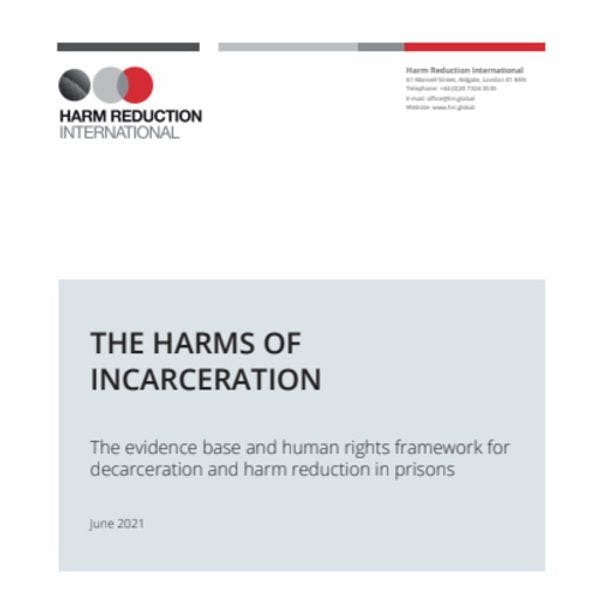HRI
Les méfaits de l'incarcération : le cadre par rapport aux données probantes et aux droits humains pour la décarcération et la réduction des risques dans les prisons
HRI met en lumière l'impact destructeur de la détention et de l'incarcération sur la santé des personnes usagères de drogues et la nécessité de s’éloigner des approches punitives. Pour en savoir plus, en anglais, veuillez lire les informations ci-dessous.
Over 11 million people are imprisoned worldwide today, the highest number ever recorded. Globally, the dominant response to drugs remains prohibition-based drug policies backed by criminal sanctions that have contributed to the increase in the prison population.
Despite some moves towards the decriminalisation and regulation of drugs, drug offences remain one of the biggest drivers of incarceration. At least one in five people in prison globally is held for drug-related offences. Approximately half a million people are serving sentences for personal drug possession. UNAIDS estimates that up to 90% of people who inject drugs will be incarcerated at some point in their life. There are also more than 400,000 people detained in forced rehabilitation and compulsory drug detention centres in Asia alone, with forms of compulsory drug treatment also existing in Latin America and the Caribbean, Eastern Europe and Central Asia and elsewhere. This punitive approach has the greatest impact on already marginalised populations, including women, racial and ethnic minorities, indigenous people and foreign nationals.
Incarceration is also an enormous waste of money and resources. Over USD 100 billion is spent globally on drug law enforcement every year, but just USD 131 million was spent on harm reduction in low- and middle-income countries in 2019. This means that we spend more than 500 times the amount on punitive responses than we do on life-saving services for people who use drugs.
Systematic reviews of evidence find that there is no clear link between imprisonment and crime rates or between compulsory treatment and drug use. In fact, there is more evidence for links between reduced welfare systems and social inequality, and increased imprisonment rates. Nevertheless, in many countries, and even more so in the context of a surge of oppressive regimes in many parts of the world, the punitive “lock them up” response to drugs remains the easiest answer to a complex issue.
